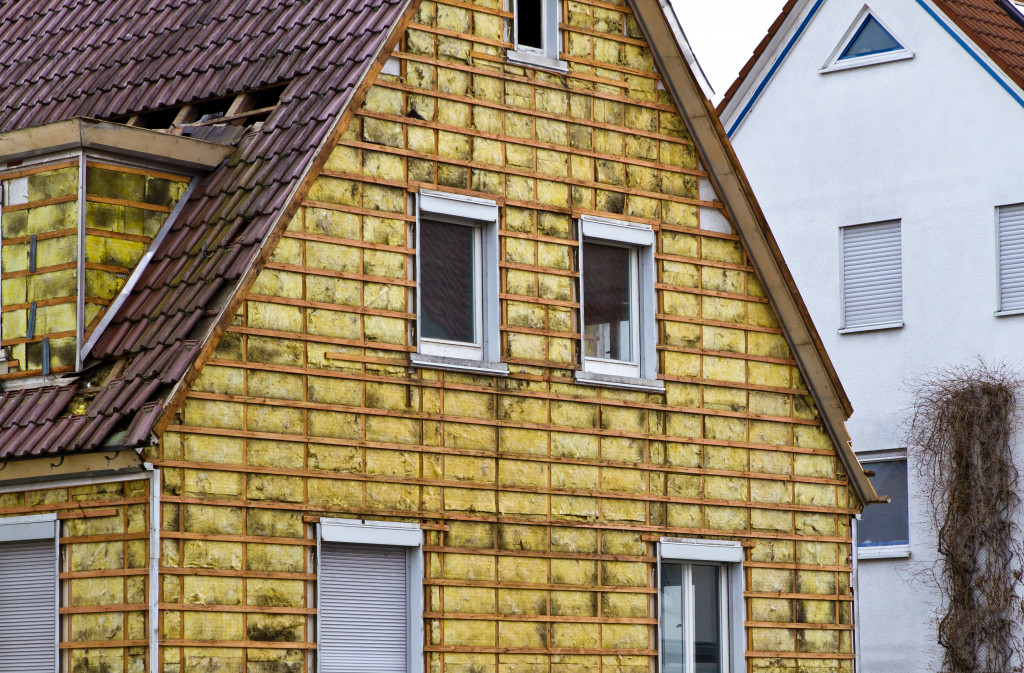Many people invest in real estate believing it is an asset that always appreciates. In reality, that’s not true.
The value of a home is contingent on the current state of the housing market and its surrounding area. A decrease in property values can be caused by any number of factors, such as overconstruction, delinquent mortgage payments, or an economic downturn.
For example, during 2008’s recession, many homes became worth less than what was owed to their lenders due to lack of income and high interest rates.
A homeowner can take steps to protect against property depreciation by following certain guidelines: invest in energy-efficient appliances and furniture that will reduce utility costs, maintain a tidy lawn and garden, keep up with repairs and renovations when necessary, and work with reputable contractors for larger projects. With these measures taken into account, you might be able to preserve your investment while allowing it to appreciate well.
Causes of House Depreciation
At least two types of depreciation can affect your home value: natural and market-driven. Natural depreciation happens over time. Houses age and eventually become obsolete by the standards of modern building codes.
Natural disasters, such as earthquakes and floods, can cause the value of homes to decline as well. Damage from natural disasters might disqualify an insured house for mortgage loans or insurance coverage. This would lower the home’s value in the eyes of buyers and lenders.
Market-driven depreciation is dependent on economic factors such as supply and demand, which can change dramatically at any time without warning.
If your neighborhood goes downhill, so does your investment. Neighborhoods with high crime rates tend to harm property prices and those near environmental hazards such as toxic waste sites.
Meanwhile, some house hunters equate a large yard with a big investment, but that isn’t necessarily true. People who want more space might be willing to pay more for it, but they don’t necessarily have more money in the long run.
The neighbors might not be too keen on building a big house next door if your property is small or oddly shaped. On the other hand, if you find a good deal on land and can afford to build from scratch or bring an existing structure up to code, size might not matter as much.
You need to know what’s going on around you before you go shopping for a house. In addition, some neighborhoods appeal mostly to certain types of people, which is fine as long as those types of people continue wanting to live there.

Effects of Home Improvements
Home improvement projects can increase or decrease your home’s resale (market) value and rental (income property) worth. For this reason, a smart apartment investment group might suggest applying certain upgrades to the space to make them more attractive to the market. Doing this also allows the real estate investor to enjoy property appreciation while earning the maximum income from the investment.
On one hand, some renovations like new flooring and cabinets might increase your home’s market value. On the other hand, poorly planned renovations might leave homeowners stuck with an unsightly mess that lowers property values. For example, a poor room layout can make a house feel smaller and less desirable.
When considering potential renovations to boost property values, you can consider two main strategies: adding space (extension) or modernizing (updating). An extension is generally more expensive than updating but sometimes necessary if your exterior walls cannot support an extension.
Doing the repairs yourself instead of hiring a professional might cause the value of your home to decline. People who can do their own work are likely to be more cost-conscious and expect lower prices from professionals if they hire them. Repairs needed after an accident or vandalism can also cause a drop in value.
Either way, although it is possible to boost your home’s market value with renovation projects, consider which ones are worth their cost. Here are some simple questions to keep in mind before starting any renovation project:
• Is this renovation practical for my location? For example, adding a second bathroom might be impractical if your target market is people who prefer to live in a studio apartment.
• What utility bills will I have after completing this project?
• Is there any potential loss of space (compromised layout) due to this renovation?
• Will I regret doing this years down the road (for example, through increased maintenance costs)?
• Do others share my opinion on what makes a desirable home or neighborhood?
Land can appreciate since it’s a finite resource. A house’s value, meanwhile, can fluctuate. Don’t feel overconfident with the investment.







